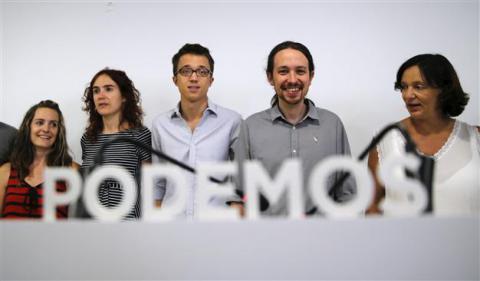Madrid's mantra: Spain is not Greece

Greece's economic turbulence is dominating political debate in Spain ahead of a year-end general election, with the ruling conservatives pointing to Syriza's difficulties to discredit its Spanish ally Podemos.
In the escalating tug-of-war between Athens and its international creditors, Prime Minister Mariano Rajoy's government is pushing the message that its reforms have stifled the risk of contagion from Greece and the two nations are not comparable.
"We have the instruments... to deal with market volatility," Economy Minister Luis de Guindos said July 6, a day after Greek voters defiantly rejected terms for a new EU-IMF bailout.
He said Spain's banks had been shored up, the public deficit more than halved, and "macroeconomic imbalances have been corrected", with the government forecasting growth of 3.3 percent this year.
Spain's economy is much larger than Greece's -- it is the fourth largest in the eurozone -- and its population of 47 million is over four times greater.
Even so, there are intriguing political parallels between the two nations.
In Spain, as in Greece, the Socialists were in power when the European debt crisis struck in 2009.
Greece's public deficit stood at 12.7 percent of its economic output while in Spain it reached 11.1 percent.
Spain's conservative Popular Party swept to power at the end of 2011 in a general election on promises to reduce the country public deficit and prevent bankruptcy. In June 2012 a right-left coalition came to power in Athens.
In both nations, austerity budgets were adopted against a backdrop of recession and a sharp rise in unemployment.
Greece received two bailouts worth a total of 240 billion euros (...
- Log in to post comments










